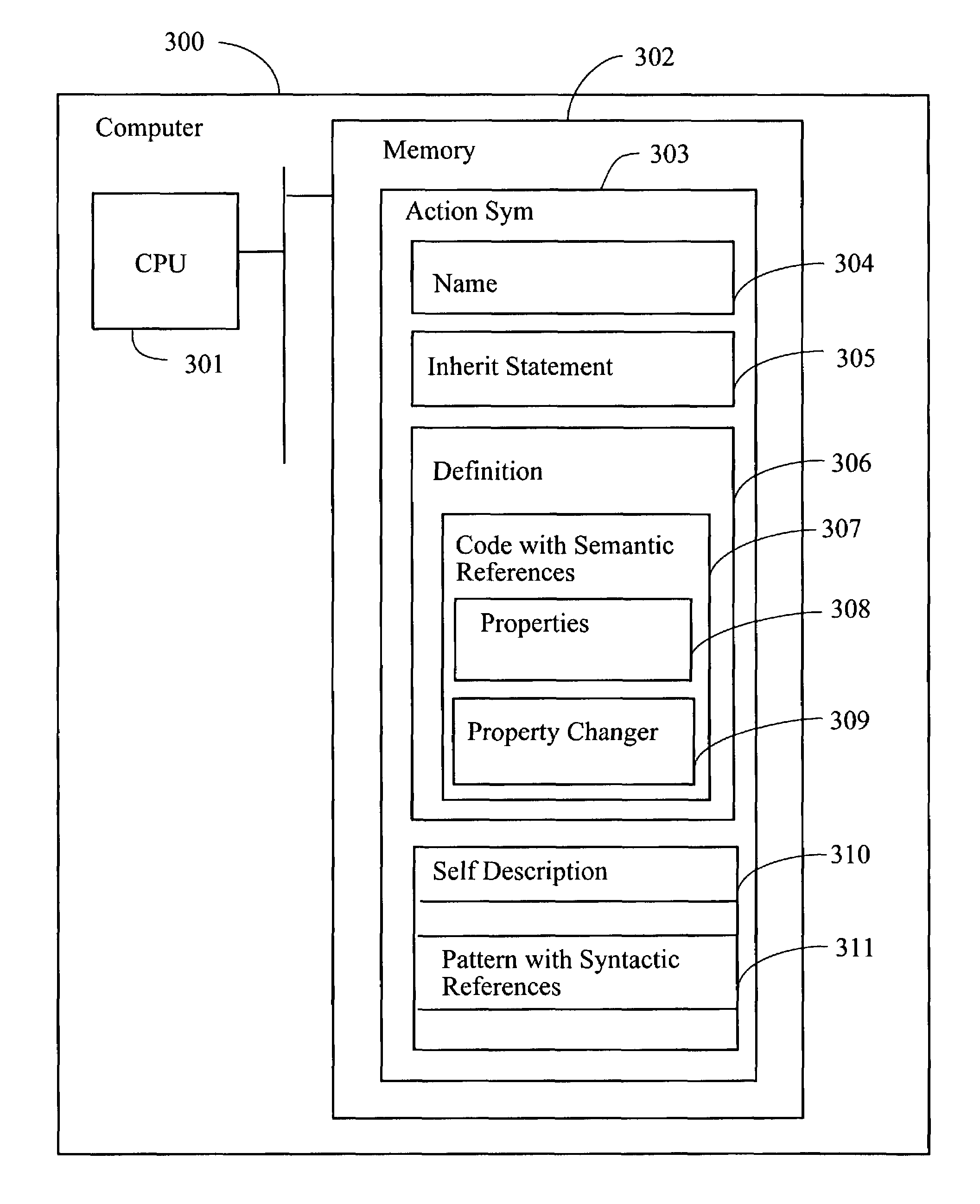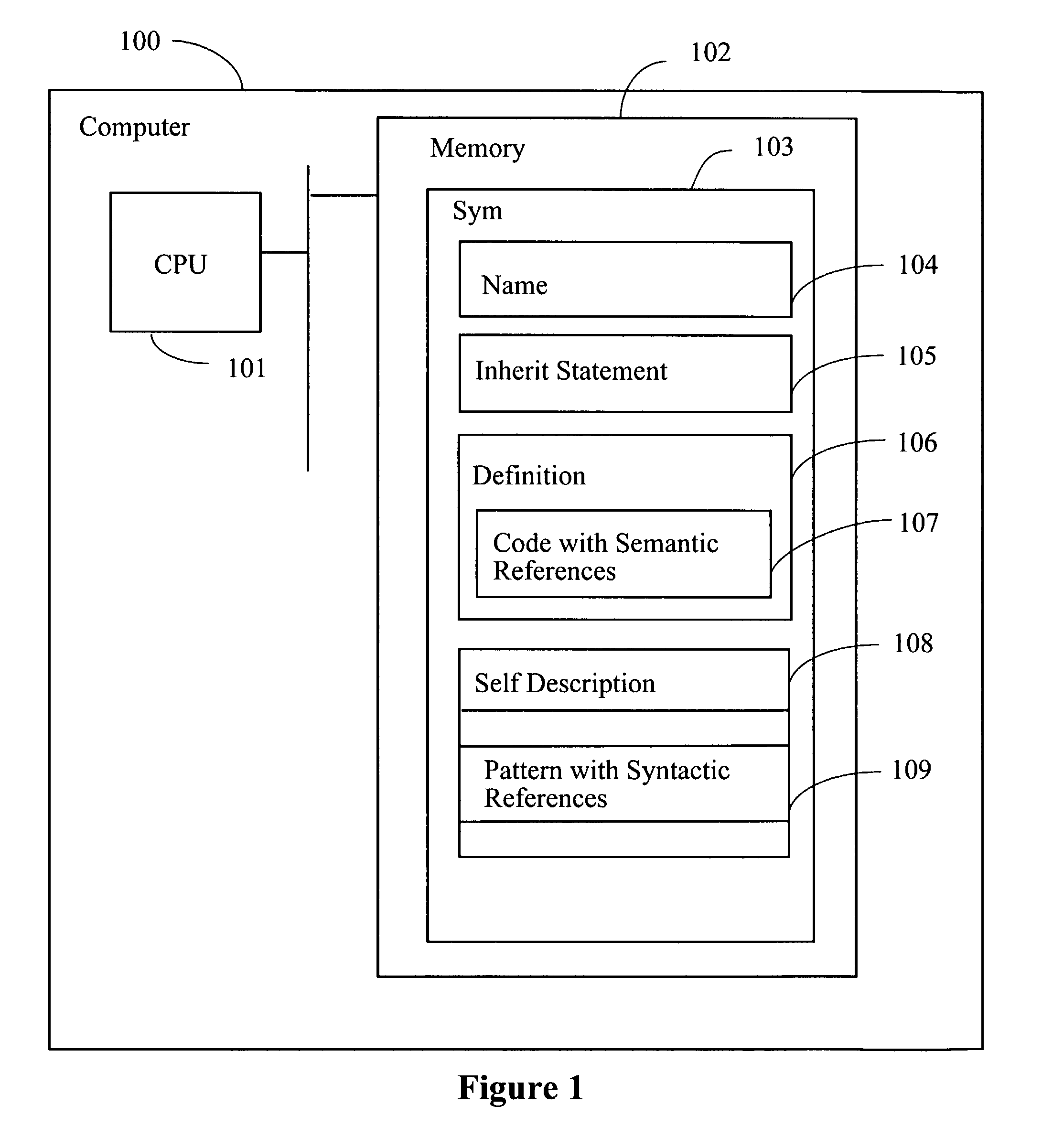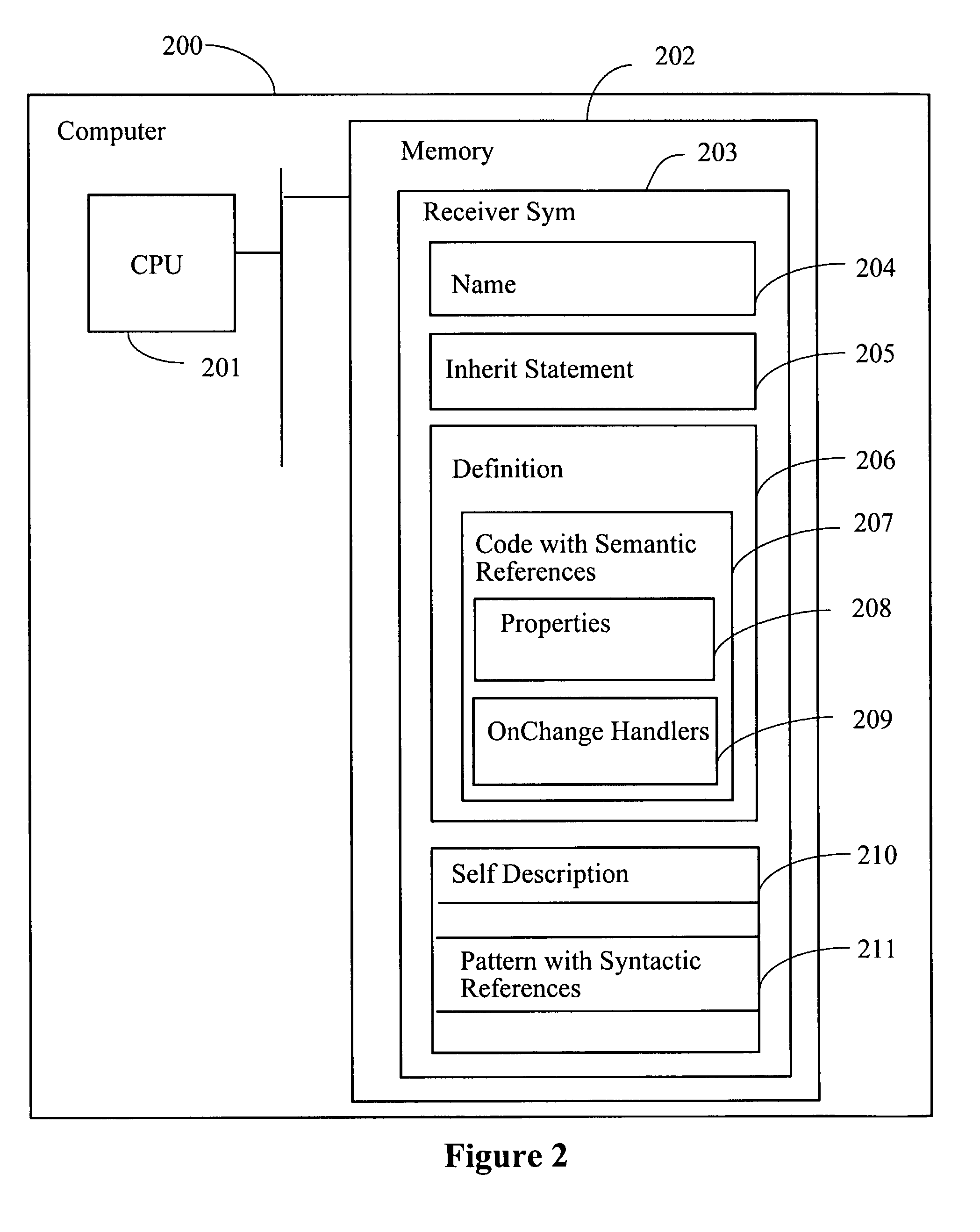Method and system for creating programs using code having coupled syntactic and semantic relationships
a technology of syntactic and semantic relationships and programming methods, applied in the field of creating computer programs, can solve problems such as constant problems such as side effects and scalability, programmers initially encountered scalability problems with unstructured programming languages, and it is impossible to guarantee that a call to a set of instructions will return rather than following a different execution path
- Summary
- Abstract
- Description
- Claims
- Application Information
AI Technical Summary
Benefits of technology
Problems solved by technology
Method used
Image
Examples
Embodiment Construction
[0035]Preface. In this section, we present a detailed description of the invention, including examples from the drawings. While the description of the invention will be presented here, it will be understood that this description is not intended to limit the invention. On the contrary, the invention presented here is intended to cover alternatives, modifications, and equivalents, which may be included within the spirit and the scope of the invention as defined in the claims.
[0036]Definitions. The term bidirectional relationship is defined for the purposes of this document as a relationship between two elements of code across a codebase, such that, given the properties of one element of code in the codebase, the location of the other element in the codebase can be determined. In object-oriented programming, for example, programmers can find the data used by a method by looking in the method's class and can find the methods that use a piece of data by looking in the data's class. Since...
PUM
 Login to View More
Login to View More Abstract
Description
Claims
Application Information
 Login to View More
Login to View More - R&D
- Intellectual Property
- Life Sciences
- Materials
- Tech Scout
- Unparalleled Data Quality
- Higher Quality Content
- 60% Fewer Hallucinations
Browse by: Latest US Patents, China's latest patents, Technical Efficacy Thesaurus, Application Domain, Technology Topic, Popular Technical Reports.
© 2025 PatSnap. All rights reserved.Legal|Privacy policy|Modern Slavery Act Transparency Statement|Sitemap|About US| Contact US: help@patsnap.com



